-
 Bitcoin
Bitcoin $117300
1.99% -
 Ethereum
Ethereum $3884
5.89% -
 XRP
XRP $3.268
9.33% -
 Tether USDt
Tether USDt $1.000
0.02% -
 BNB
BNB $783.0
1.78% -
 Solana
Solana $173.6
3.51% -
 USDC
USDC $0.9999
0.00% -
 Dogecoin
Dogecoin $0.2193
7.00% -
 TRON
TRON $0.3380
0.30% -
 Cardano
Cardano $0.7769
5.08% -
 Stellar
Stellar $0.4350
9.36% -
 Hyperliquid
Hyperliquid $40.23
5.78% -
 Sui
Sui $3.739
6.95% -
 Chainlink
Chainlink $18.30
9.46% -
 Bitcoin Cash
Bitcoin Cash $581.7
2.11% -
 Hedera
Hedera $0.2577
5.51% -
 Ethena USDe
Ethena USDe $1.001
0.00% -
 Avalanche
Avalanche $23.08
4.23% -
 Litecoin
Litecoin $121.7
2.24% -
 UNUS SED LEO
UNUS SED LEO $8.962
-0.34% -
 Toncoin
Toncoin $3.332
1.36% -
 Shiba Inu
Shiba Inu $0.00001273
3.39% -
 Uniswap
Uniswap $10.35
6.84% -
 Polkadot
Polkadot $3.818
4.01% -
 Dai
Dai $1.000
0.01% -
 Bitget Token
Bitget Token $4.446
2.13% -
 Cronos
Cronos $0.1491
4.96% -
 Monero
Monero $255.4
-9.78% -
 Pepe
Pepe $0.00001099
4.80% -
 Aave
Aave $284.0
8.01%
does blockchain freeze accounts
Despite blockchain's decentralized nature, various jurisdictions are exploring legal frameworks to freeze blockchain accounts associated with illicit activities or sanctioned entities, raising concerns about due process and the erosion of anonymity.
Oct 12, 2024 at 11:24 am

Can Blockchain Accounts Be Frozen?
Blockchain technology is renowned for its decentralization and immutability. However, concerns have arisen regarding the potential for blockchain accounts to be frozen. This article will delve into the complexities surrounding this topic, exploring the technical limitations, legal considerations, and ongoing debates.
1. Blockchain Technology: An Overview
Blockchain is a distributed ledger system that maintains a continuously growing list of records, called blocks, linked and secured using cryptography. Data entered into a blockchain becomes virtually tamper-proof due to the consensus mechanisms employed by most blockchains.
2. Account Structure on Blockchain
Unlike traditional banking accounts, blockchain accounts are not directly linked to individuals or entities. Instead, they are identified by cryptographic keys. These keys determine ownership and control over the account's funds or assets.
3. Freezing Accounts: Technical Limitations
Blockchain's decentralized nature poses a significant challenge to freezing accounts. In most cases, the blockchain network itself does not have the ability to freeze or seize funds. This is because:
- Transactions are irreversible once they are confirmed on the blockchain.
- The blockchain is not controlled by any single entity or regulator.
4. Legal Considerations
Despite the technical challenges, there have been efforts to freeze blockchain accounts through legal and regulatory means. In some jurisdictions:
- Law enforcement agencies can obtain court orders to seize funds connected to illicit activities.
- Governments can implement regulations that require blockchain exchanges and other platforms to freeze accounts associated with sanctioned entities or individuals.
5. Challenges and Concerns
Freezing blockchain accounts raises concerns about:
- Due process: Ensuring that accounts are not frozen arbitrarily or without proper legal justification.
- Centralization: Legal freezing mechanisms may introduce elements of centralization into an otherwise decentralized system.
- Erosion of anonymity: Freezing accounts could erode the privacy and anonymity that blockchain users value.
6. Ongoing Debates
The issue of freezing blockchain accounts remains a topic of ongoing debate. Some argue that it is necessary to combat illegal activities and protect victims. Others emphasize the importance of preserving the integrity and decentralization of blockchain.
Conclusion
While blockchain technology presents technical limitations to freezing accounts, legal frameworks are emerging to address the issue. However, efforts to balance security concerns with due process and user rights remain ongoing. The future of account freezing on blockchain will depend on the continued evolution of both technology and regulation.
Disclaimer:info@kdj.com
The information provided is not trading advice. kdj.com does not assume any responsibility for any investments made based on the information provided in this article. Cryptocurrencies are highly volatile and it is highly recommended that you invest with caution after thorough research!
If you believe that the content used on this website infringes your copyright, please contact us immediately (info@kdj.com) and we will delete it promptly.
- Cold Wallet Crypto in 2025: The Future is Now, Ya'll
- 2025-08-08 05:10:13
- MAGACOIN, SOL, and ADA: A Tale of Shifting Tides in Crypto
- 2025-08-08 05:10:13
- SHIB Price, PEPE, and the Memecoin Supercycle: Who Will Reign Supreme?
- 2025-08-08 05:50:12
- Pudgy Penguins Price Prediction: Google Trends & Breakout Signals
- 2025-08-08 05:50:12
- UAE Crypto Regulation: SCA and VARA Unite to Streamline the Future of Digital Assets
- 2025-08-08 05:55:48
- MAGACOIN Finance: The Presale Phenomenon Rocking the Crypto World
- 2025-08-08 05:55:48
Related knowledge

What is the purpose of a nonce in mining?
Aug 04,2025 at 05:56pm
Understanding the Role of a Nonce in Cryptocurrency MiningIn the world of cryptocurrency mining, the term nonce stands for 'number used only once.' Th...
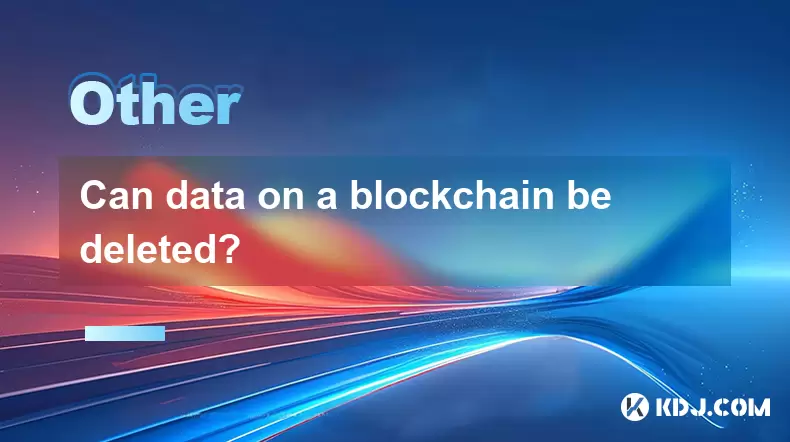
Can data on a blockchain be deleted?
Aug 05,2025 at 04:00am
Understanding Blockchain ImmutabilityThe core principle behind most blockchain systems is immutability, which means that once data is recorded onto th...
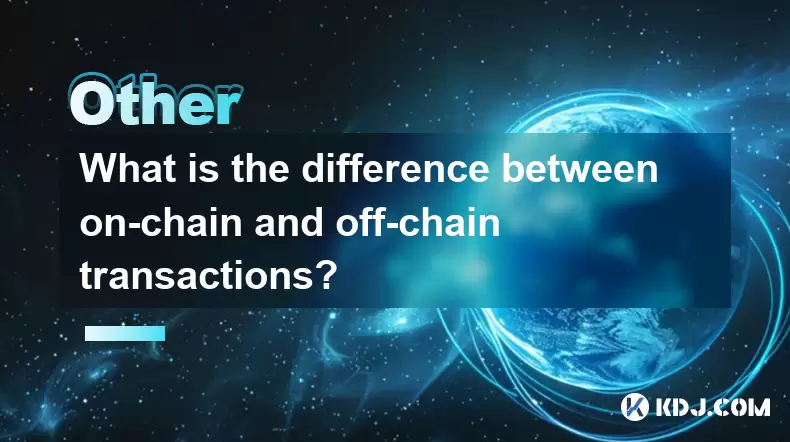
What is the difference between on-chain and off-chain transactions?
Aug 02,2025 at 04:22pm
Understanding On-Chain TransactionsOn-chain transactions refer to digital asset transfers that are recorded directly on a blockchain ledger. These tra...
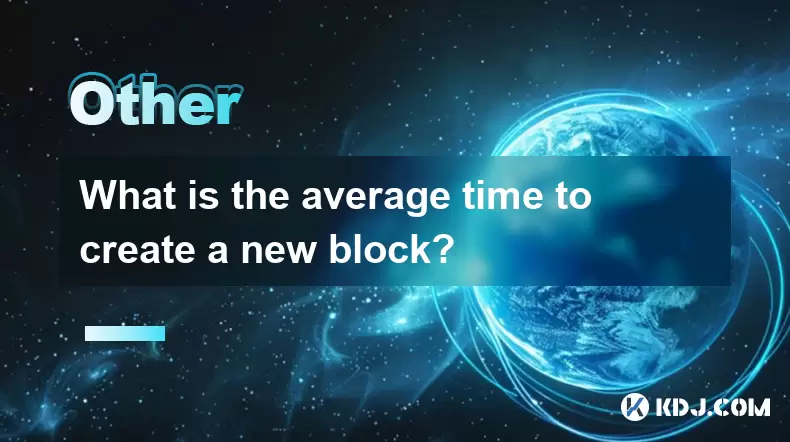
What is the average time to create a new block?
Aug 06,2025 at 09:21pm
Understanding Block Creation in Blockchain NetworksThe average time to create a new block varies significantly depending on the specific blockchain pr...
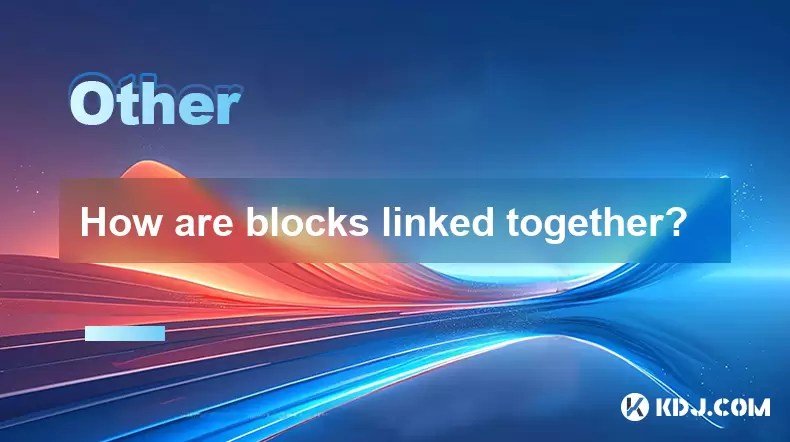
How are blocks linked together?
Aug 04,2025 at 06:56am
Understanding the Structure of a BlockchainA blockchain is a decentralized digital ledger composed of a sequence of blocks, each containing a list of ...
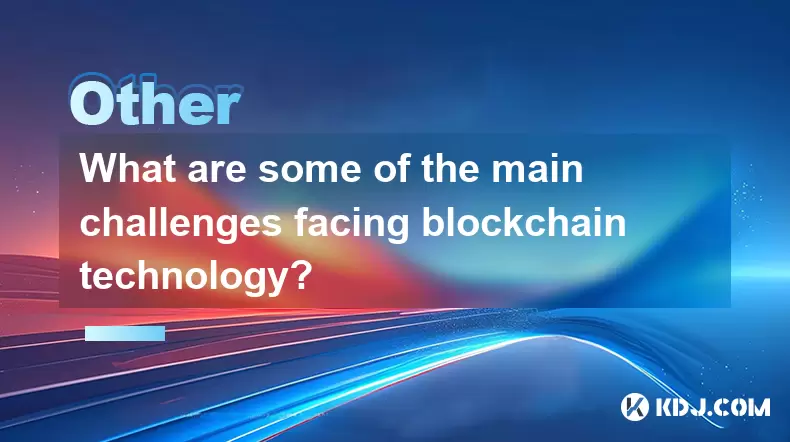
What are some of the main challenges facing blockchain technology?
Aug 07,2025 at 02:58am
Scalability Constraints in Blockchain NetworksOne of the most persistent challenges in blockchain technology is scalability. As blockchain networks gr...

What is the purpose of a nonce in mining?
Aug 04,2025 at 05:56pm
Understanding the Role of a Nonce in Cryptocurrency MiningIn the world of cryptocurrency mining, the term nonce stands for 'number used only once.' Th...

Can data on a blockchain be deleted?
Aug 05,2025 at 04:00am
Understanding Blockchain ImmutabilityThe core principle behind most blockchain systems is immutability, which means that once data is recorded onto th...

What is the difference between on-chain and off-chain transactions?
Aug 02,2025 at 04:22pm
Understanding On-Chain TransactionsOn-chain transactions refer to digital asset transfers that are recorded directly on a blockchain ledger. These tra...

What is the average time to create a new block?
Aug 06,2025 at 09:21pm
Understanding Block Creation in Blockchain NetworksThe average time to create a new block varies significantly depending on the specific blockchain pr...

How are blocks linked together?
Aug 04,2025 at 06:56am
Understanding the Structure of a BlockchainA blockchain is a decentralized digital ledger composed of a sequence of blocks, each containing a list of ...

What are some of the main challenges facing blockchain technology?
Aug 07,2025 at 02:58am
Scalability Constraints in Blockchain NetworksOne of the most persistent challenges in blockchain technology is scalability. As blockchain networks gr...
See all articles

























































































